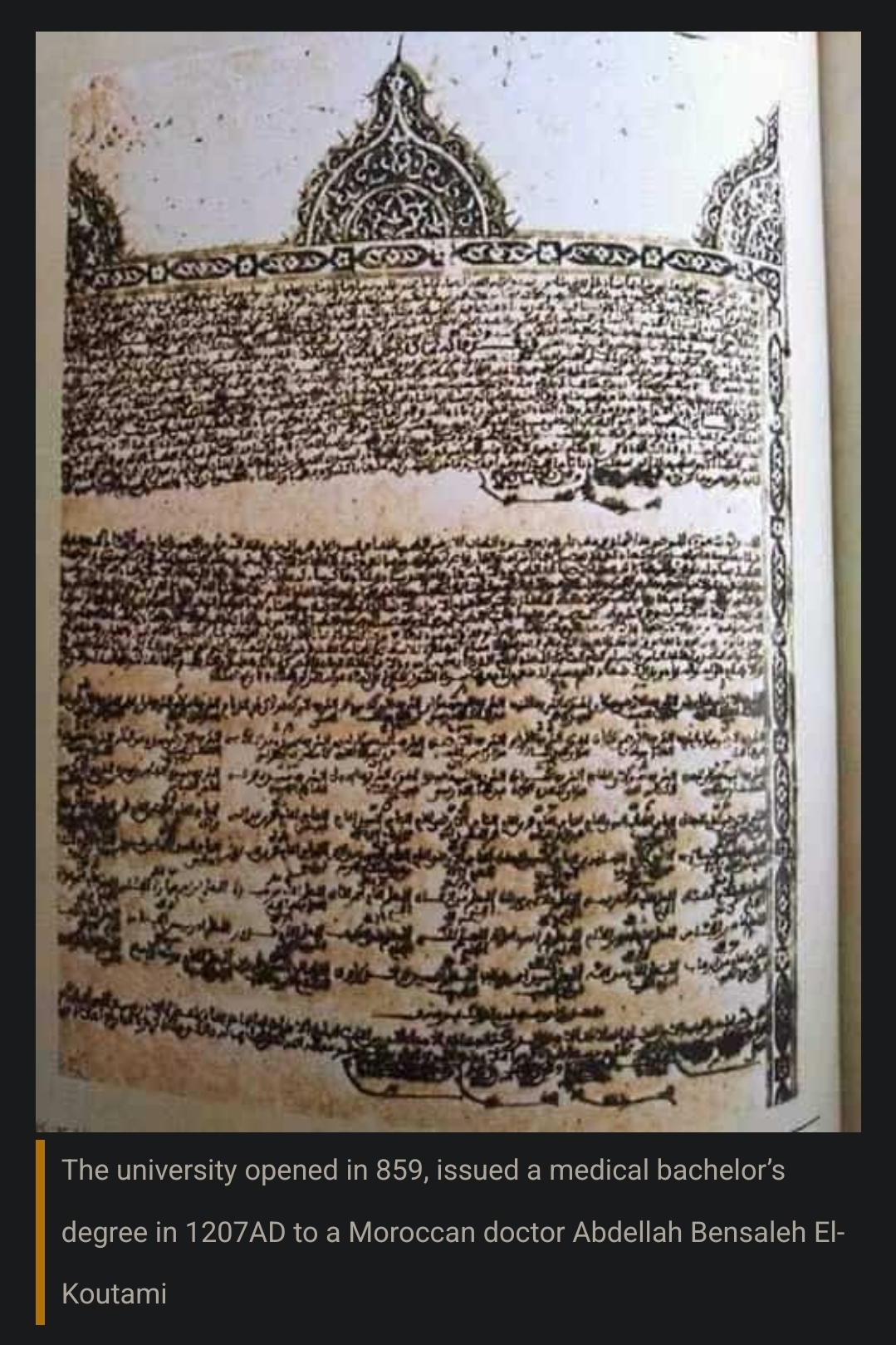You know that episode of The Simpsons where Lisa hides the fact the town founder is a bad person because it'd make the town sad?
That is me trying to hold back that, upon research (reading the Wikipedia page), I found out that Fatima al-Fihriya is probably not a real person :(

